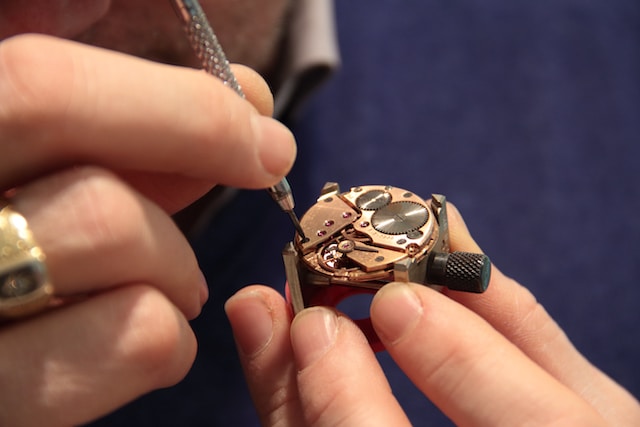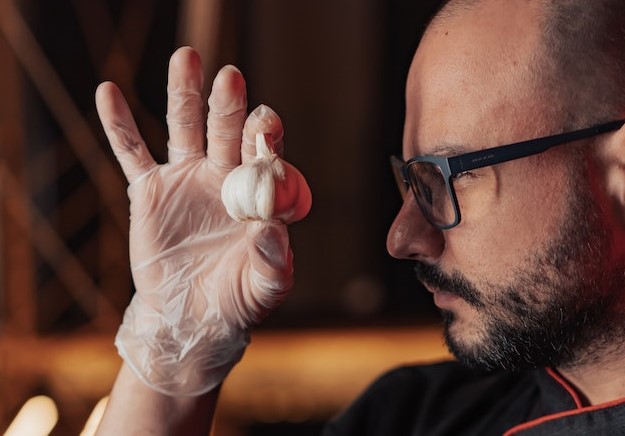Meticulous describes someone who is extremely careful and takes great care to do things correctly. This word often has a positive connotation. Fastidious, on the other hand, describes someone who is so concerned with doing things perfectly that they can become excessively picky or difficult to please. This word often has a negative connotation.
Meticulous
(Photo by Matteo Vella on Unsplash )

“Meticulous” is an adjective that means extremely careful, precise, and thorough in the performance of a task or work. It implies great attention to detail and a commitment to doing something with a high level of accuracy or completeness. A person who is meticulous may be described as diligent, conscientious, and exacting in their approach to work or other tasks. The term can be applied to various fields, such as science, engineering, art, and craftsmanship, where precision and attention to detail are highly valued.
Fastidious
(Photo by Mikhail Nilov)

“Fastidious” is an adjective that describes someone who is very attentive to detail and extremely concerned with cleanliness, orderliness, or neatness. A person who is fastidious may be excessively particular or demanding, and may have high standards or expectations. The term can be used to describe someone who is very picky, finicky, or meticulous about their appearance, their surroundings, or their work. It can also refer to someone who is hard to please, easily disgusted, or fussy. In some cases, being fastidious can be seen as a positive trait, as it can lead to high-quality work or a clean and organized environment, but in other cases, it can be seen as a negative trait if it becomes obsessive or interferes with daily life.
Meticulous Vs. Fastidious – Key differences
Meticulous and fastidious are both adjectives that describe someone who is very detail-oriented, but there are some key differences between the two terms:
Focus: Meticulousness is primarily focused on accuracy and completeness. A person who is meticulous pays close attention to detail and is very thorough in the performance of a task or work. Fastidiousness, on the other hand, is primarily focused on cleanliness, orderliness, and neatness. A person who is fastidious is very particular about their surroundings and appearance, and may have high standards for cleanliness or organization.
Attitude: Meticulousness is often associated with a positive attitude towards work or tasks. A person who is meticulous takes pride in their work and strives to do it to the best of their ability. Fastidiousness, on the other hand, is often associated with a more negative attitude. A person who is fastidious may be seen as picky or difficult to please.
Scope: Meticulousness can be applied to a wide range of tasks or work. A person who is meticulous may be equally detail-oriented in different areas of their life, such as work, hobbies, or personal projects. Fastidiousness is more limited in scope, as it primarily applies to cleanliness, orderliness, and neatness.
While both terms describe a person who is very detail-oriented, meticulousness is more focused on accuracy and completeness, with a positive attitude towards work, while fastidiousness is more focused on cleanliness and orderliness, with a potentially negative attitude towards others.
What is the difference between meticulous and scrupulous?
While both “meticulous” and “scrupulous” are adjectives that describe someone who is very attentive to detail, there are some key differences between the two terms:
Focus: Meticulousness is primarily focused on accuracy and completeness, with an emphasis on being careful and thorough in the performance of a task or work. Scrupulousness, on the other hand, is primarily focused on ethics and morality, with an emphasis on being honest, fair, and conscientious in one’s behavior.
Attitude: Meticulousness is often associated with a positive attitude towards work or tasks. A person who is meticulous takes pride in their work and strives to do it to the best of their ability. Scrupulousness is also associated with a positive attitude, but in a different way. A person who is scrupulous is seen as having a strong sense of right and wrong, and is committed to ethical behavior even in difficult situations.
Scope: Meticulousness can be applied to a wide range of tasks or work. A person who is meticulous may be equally detail-oriented in different areas of their life, such as work, hobbies, or personal projects. Scrupulousness is more limited in scope, as it primarily applies to ethical or moral behavior.
Both terms describe a person who is very detail-oriented, meticulousness is more focused on accuracy and completeness in the performance of a task or work, while scrupulousness is more focused on ethics and morality in behavior.
What is the difference between punctilious and meticulous?
The main difference between punctilious and meticulous is that punctilious refers to someone who is very careful and precise in their work, while meticulous refers to someone who pays attention to detail and is very thorough in their work.
Punctilious comes from the Latin word punctum, which means “point” or “detail.” It refers to someone who is very careful and precise in their work. They take the time to make sure that everything is perfect and they don’t cut corners.
Meticulous comes from the Latin word metulosus, which means “worrying” or “anxious.” It refers to someone who pays attention to detail and is very thorough in their work. They want to make sure that everything is done right and they will double-check their work to make sure that there are no mistakes.
What does fastidious mean in psychology?
In psychology, “fastidious” refers to a personality trait that describes a person who has a strong need for orderliness, neatness, and cleanliness. This trait is often associated with perfectionism, as well as a tendency to be highly critical of oneself and others. People who are fastidious may have a strong need for control, and may become anxious or upset when their environment is disorganized or cluttered.
Fastidiousness is one of the traits that is measured by the NEO Personality Inventory, which is a commonly used personality assessment tool in psychology. According to this model, fastidiousness is one of the five dimensions of personality, along with openness, conscientiousness, extraversion, and neuroticism. People who score high on the fastidiousness dimension tend to be well-organized, disciplined, and reliable, but may also be seen as rigid or inflexible in their thinking or behavior.
Featured Image By – cottonbro studio








